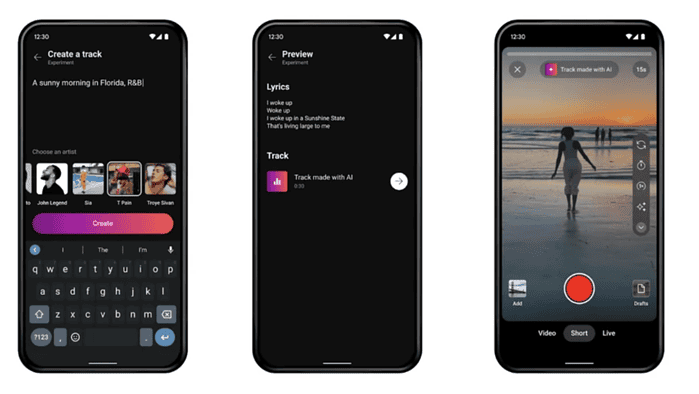Dream Track, YouTube's AI music generator, will soon be able to create instrumental-only tracks
Dream Track uses Lyria, Google's music generation model
2 min. read
Updated on
Read our disclosure page to find out how can you help MSPoweruser sustain the editorial team Read more
Key notes
- Google and YouTube’s Dream Track AI tool will soon generate instrumental tracks for Shorts videos.
- Creators can use English text prompts and select a genre to create these soundtracks.
- Previously, Google said that you can create soundtracks using the voice of consenting real-life artists.

A few months back, Google and YouTube announced the preview of Dream Track, an AI tool that lets you generate soundtracks for horizontal Shorts videos. And now, there seems to be an update to this: it will soon let you generate instrumental-only tracks.
The popular video-sharing platform said in an updated entry on its experimental page that it is a part of the test that’s currently undergoing. Now, besides AI-generated voices of consenting musicians, you can create instrumentals for your Shorts videos’ soundtracks based on genre.
“Now, creators in the new experiment group can enter English-only text prompts + select a music genre (pop, hip hop, country, etc.) to generate instrumental soundtracks for their Shorts,” the update reads.
Dream Track uses Google’s Lyria music-generating model to create high-quality sound, sort of like the newly launched Suno v3 model that can create “radio-quality” music. At least nine real-life musicians, including Alec Benjamin, Charlie Puth, Charli XCX, Demi Lovato, John Legend, Papoose, Sia, T-Pain, and Troye Sivan, have consented to participate in the project.
But that’s not without clear regulations, though. YouTube has been working closely to combat AI-generated content that’s shared without consent and has already taken down a lot of videos. And, if you’re an AI content creator, YouTube has already required you to label your content as “altered or synthetic content.”
“Sound or visuals were altered or generated digitally,” the warning label reads.








User forum
0 messages